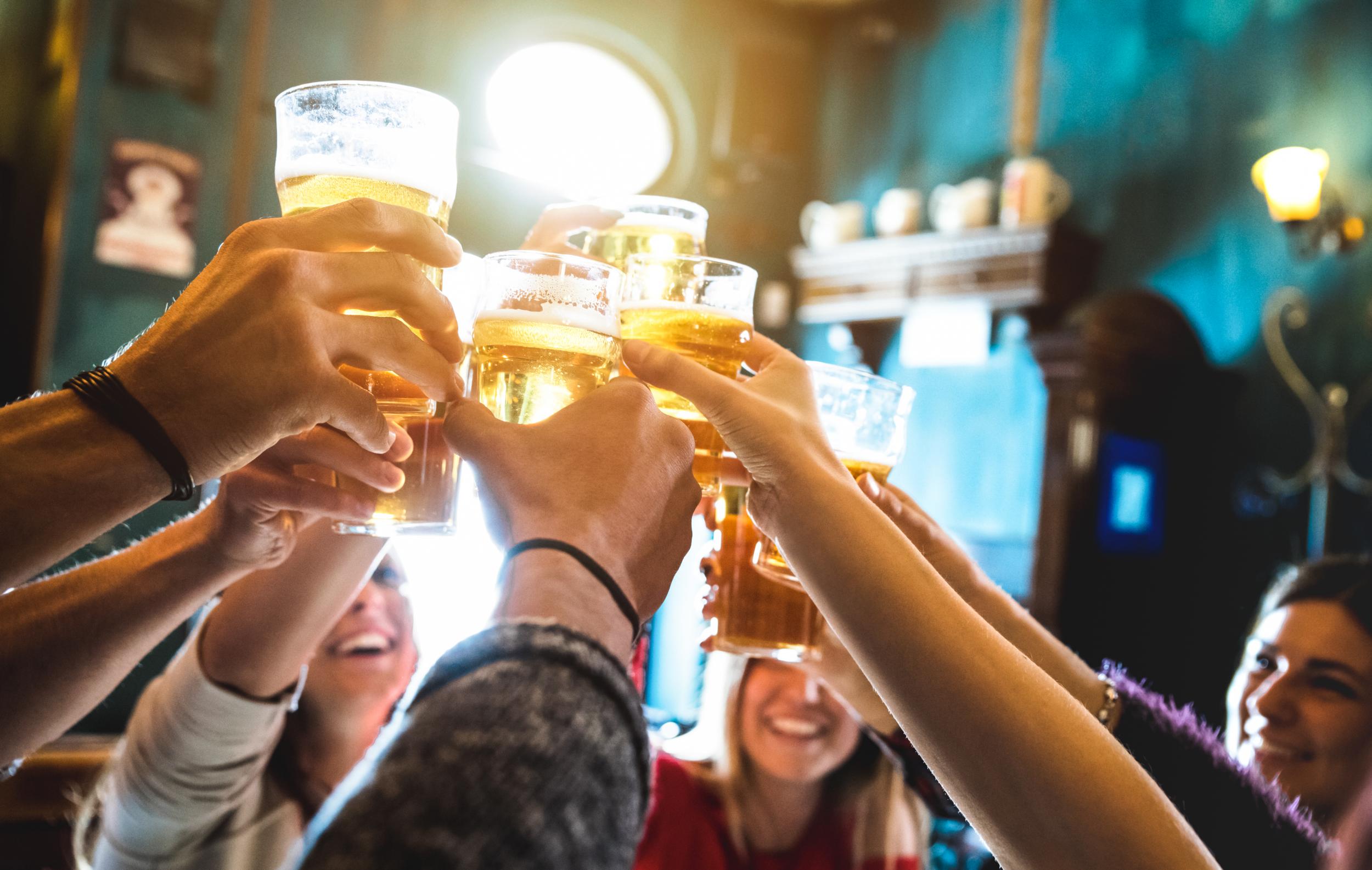Global alcohol consumption has increased 70% in less than 30 years, new research shows
British consumption of booze has fallen since 1990, while Asia has seen a boom in drinking

Your support helps us to tell the story
From reproductive rights to climate change to Big Tech, The Independent is on the ground when the story is developing. Whether it's investigating the financials of Elon Musk's pro-Trump PAC or producing our latest documentary, 'The A Word', which shines a light on the American women fighting for reproductive rights, we know how important it is to parse out the facts from the messaging.
At such a critical moment in US history, we need reporters on the ground. Your donation allows us to keep sending journalists to speak to both sides of the story.
The Independent is trusted by Americans across the entire political spectrum. And unlike many other quality news outlets, we choose not to lock Americans out of our reporting and analysis with paywalls. We believe quality journalism should be available to everyone, paid for by those who can afford it.
Your support makes all the difference.British people are drinking less alcohol than three decades ago, despite a huge rise in the amount of booze consumed in large parts of the world, a study has shown.
UK consumption dropped from 12.6 litres of pure alcohol a year per adult in 1990 to 11.4 litres in 2017 – a decline of almost 10 per cent.
It is predicted to fall even further by 2030, dipping to only 11 litres a year per adult, according to a study of almost 200 countries’ alcohol intake published in The Lancet.
Despite the significant decrease in drinking, campaigners warned that four out of five people with an alcohol problem in the UK were still not getting treatment, as they called for more support to be available at an earlier stage.
The new research on international patterns measured alcohol consumption per person between 1990 and 2017 from World Health Organisation (WHO) data and the Global Burden of Disease study.
It showed consumption globally increased by 70 per cent from 20,999 million litres in 1990 to 35,676 million litres in 2017.
Jakob Manthey, the study’s author from the TU Dresden institute in Germany, said there has been a huge increase in the uptake of alcoholic beverages in large parts of Asia, while many Europeans were drinking less.
“Before 1990, most alcohol was consumed in high-income countries, with the highest use levels recorded in Europe.
“However, this pattern has changed substantially, with large reductions across eastern Europe and vast increases in several middle-income countries such as China, India and Vietnam.
He added: “This trend is forecast to continue up to 2030 when Europe is no longer predicted to have the highest level of alcohol use.”
The number of drinks that are equivalent to the measure of pure alcohol differs by country. In the UK a standard drink is 8g of pure alcohol. A measure of 5.9 litres is equivalent to one-and-a-half UK standard drinks per day.
More than one in seven (15 per cent) people in the UK abstained from alcohol in 2017, three in four (77 per cent) had alcohol, and more than one in four (26 per cent) were binge drinking at least once a month.
Karen Tyrell, of drug and alcohol charity Addaction, warned: “In the UK, four out of five people with an alcohol problem aren’t getting any sort of treatment. We need to make it a lot easier to get help and support at a much earlier stage.
“Alcohol is soaked through our culture. The alcohol industry has set the terms of the debate for too long. Flashy marketing disguises an industry that doesn’t do nearly enough to compensate for the harm it causes. We know that 4 per cent of drinkers consume one-third of the alcohol sold.”
He added: “Helping people make healthier choices is vital but all the evidence shows we need a better policy if we are serious about change.”
Additional reporting by PA
Join our commenting forum
Join thought-provoking conversations, follow other Independent readers and see their replies
Comments